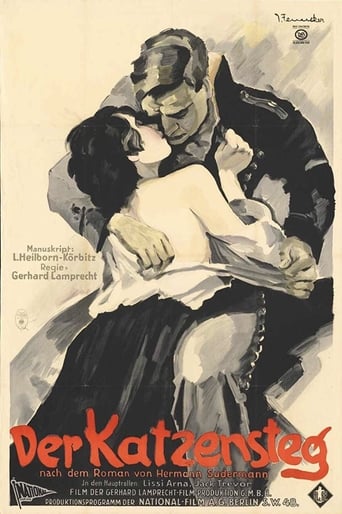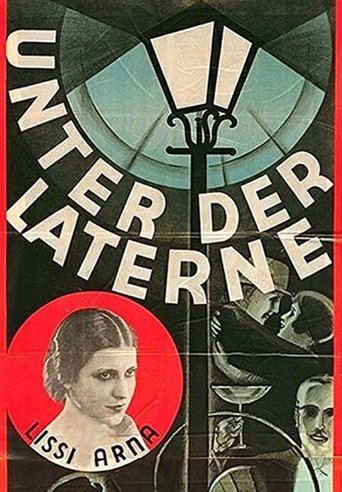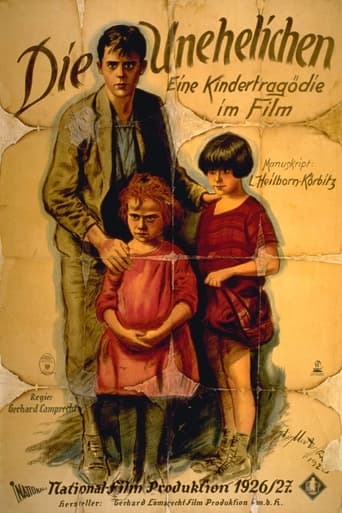Gerhard Lamprecht Filmproduktion GmbH
The Cat's Bridge 1927
In 1807 Prussia, Napoleon supporter Baron von Schranden forces his maid Regine to lead the French enemy across “Cat’s Bridge”, up behind a corps of Prussian volunteers who the French then decimate. In retaliation for this betrayal, the people of Schranden set the lord’s castle on fire. When the baron’s son Boleslav returns to the village a Prussian war hero in 1813, he is faced with a self-righteous village community that has denied his late father a decent burial. Regine is Boleslav’s only ally, and Boleslav is Regine’s only ally. The conflict escalates, and the villagers set up an ambush for him at Cat’s Bridge …
Under the Lantern 1928
Else Riedel (Lissy Arna), locked out by her authoritarian father, seeks refuge with her boyfriend Hans. Complications threaten when Hans's roommate Max falls in love with her, but the situation is resolved: the three remain friends, and decide to form a music hall act. They want to ascend, but how? A way out beckons when a theatrical agent named Nevin enters Else’s life. He is played by Hubert von Meyerinck as a slick and oily villain, who oozes refinement; his experience behind bars is waved away with a silk scarf. He is cunning to the point of perfidiousness, but is not completely unsympathetic. He also embodies a new type - the scrounger.
Children of No Importance 1926
If watching a fellow facing indifference/rejection in the slums of Berlin didn't convey enough pathos, Gerhard Lamprecht gathered much of the same crew from Die Verrufenen and turned his attention to the city's population of unwanted children for the heart-tugging Die Unehelichen, released the following year. The trio of foster children at the center of Die Verrufenen are survivors who use their own resourcefulness to get by when the kids' guardians and the system itself let them down.
The Folk Upstairs 1926
In "Menschen Untereinander" ("The Folk Upstairs"), director Gerhard Lamprecht sketches a cross-section of Germany's new post-war society, with its winners, social climbers, and losers, represented by the social microcosm of an apartment building. The gossip-mad Frau Mierig (Lydia Potechina) from the rear building gives the newly-arrived Frau Kaminski (Käthe Haack), the janitor's wife, a lively initiation into the tenants and their peculiarities.




